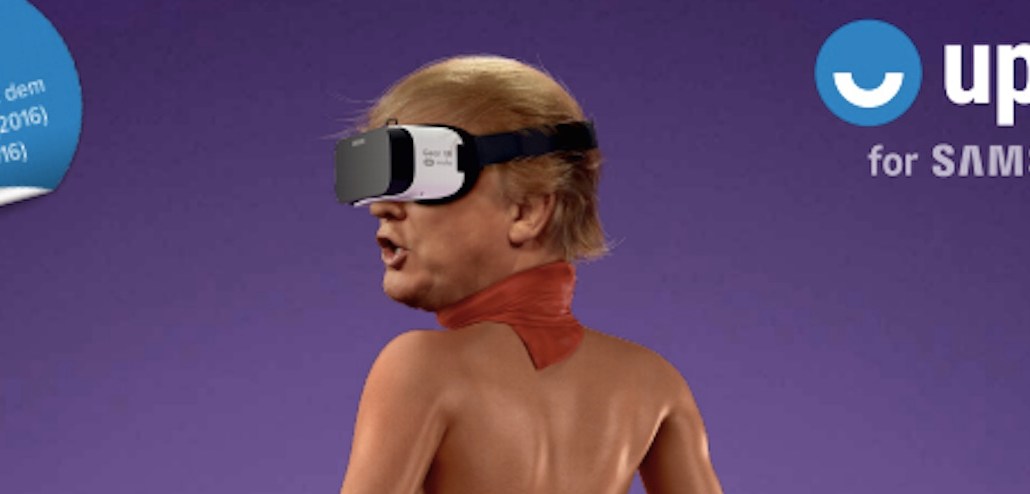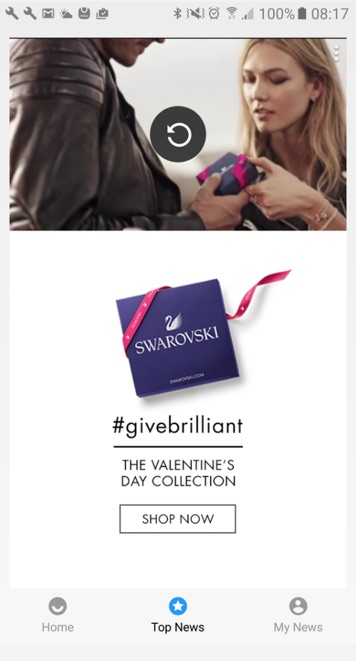
Upday, the news aggregator platform and subsidiary of Axel Springer, plans to be in 16 regions across Europe by the end of June, doubling its editorial staff from 25 to 50.
According to figures from the company, Upday is the second-most popular news app across Android and iOS, behind BBC News in the U.K. (which has nearly 10 million unique users to its app). Upday says it has 8.5 million monthly users, 6.5 million of whom are in the app for longer than six seconds. (In the U.K., this is 2.5 million and 1.8 million, respectively.)
Each day the platform uses local journalists — in the U.K., it’s a team of seven — to pick the top 10 news stories, as well as surface a mix of stories about topics readers have chosen. It pulls in content from 2,000 publishers in Europe, none of which are behind a paywall, but it’s in talks to offer a certain number of free articles, something that Apple News does. The company also said it drives 2 million visits to publishers’ sites and accounts for between 2 percent and 10 percent of mobile traffic for publishers across Europe, although it was unable to give any context around this number.
“European domination was the aim and is now the reality,” Robin Hough, U.K. managing director for Upday, told Digiday. The platform launched pre-loaded on Samsung devices last March, in the U.K., Germany, France and Poland; now, the goal is to be the biggest news app in Europe.
“From the figures, this looks eminently achievable based on growth projections,” said Hough. “Implicitly that means overtaking BBC News.”
Making sure they are loyal readers is important. Here, Hough says that on average 90 percent of users return each week. Hough says discoverability is not something it has a problem with, saying it’s easy for people to swipe right to find the service.
“Our news app is a utility to our users,” said Hough. “We’re not a giant tech company trying to be a frenemy. We’re a ‘for us, by us’ platform. We understand first-hand how publishers work and the pressures they are under. We want commercial success but also something that works for the wider industry.”

Brands like Audi, Porsche, VW, Canon and Swarovski have all run campaigns, which are in-app, full page, rich media campaigns, approximately shown every 10 or so cards.
To begin with, Upday was selling ads direct in September, it began selling ads programmatically at the beginning of this year too. Most brands opt for a combination. Hough was unable to give out specific results for the campaign but said that it’s seen success using a mix of branded content followed by a more transactional display ad with a call to action, like an app download or voucher code.
It is opening six new offices, which will work across the 16 regions. For instance, the team in Stockholm will cover Denmark, Norway and Finland as well as Sweden. Each new office will have six editorial staff. The business operations and commercial team is centralized in its Berlin headquarters, with local sales also handled by each market’s managing director, so advertisers can run pan-Europe and local market campaigns.
Entering 16 more markets will spur Upday’s growth, but it will be an uphill battle. For now, its sights are just on Europe. Also, because of its Samsung partnership, it will never be on iOS, cutting out a huge chunk of potential phone users. According to Kantar, Android accounts for 50 percent market share in the U.K., and 48 percent goes to Apple. In Europe, its much more heavily weighted towards Android.
“The risk of machine-led news is you can gradually fall into a filter bubble where serendipity is lost,” said Hough. “Our ‘My News’ algorithm is sophisticated enough to allow for serendipity. And our ‘Top News’ section builds on that through journalist curation. Having the human editorial touch helps take the machine risk out of it.”
More in Media

In Graphic Detail: The scale of the challenge facing publishers, politicians eager to damage Google’s adland dominance
Last year was a blowout ad revenue year for Google, despite challenges from several quarters.

Why Walmart is basically a tech company now
The retail giant joined the Nasdaq exchange, also home to technology companies like Amazon, in December.

The Athletic invests in live blogs, video to insulate sports coverage from AI scraping
As the Super Bowl and Winter Olympics collide, The Athletic is leaning into live blogs and video to keeps fans locked in, and AI bots at bay.





